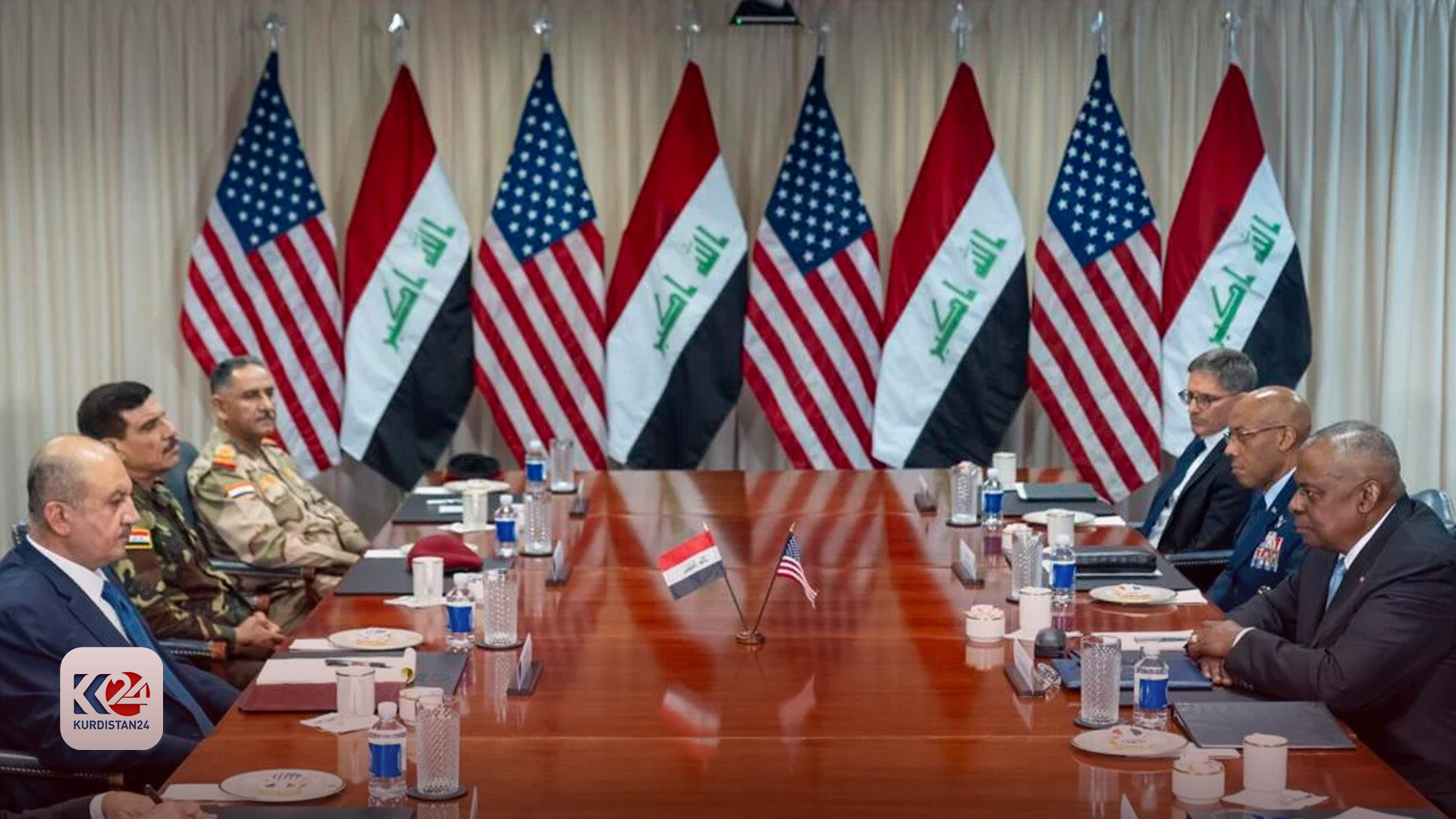U.S. Approves $100 Million Country-Wide Repeater System Sale to Iraq
The US State Department approved a potential $100 million Foreign Military Sale to Iraq for a nationwide communications and repeater system. The package aims to enhance Iraq's command-and-control capabilities and security coordination across the country.

ERBIL (Kurdistan24) – The U.S. State Department has approved a possible Foreign Military Sale to the Government of Iraq consisting of a nationwide communications and repeater system valued at up to $100 million, according to a statement released by the Defense Security Cooperation Agency (DSCA) on Nov. 13, 2025.
The DSCA said it has delivered the required certification notifying Congress of the proposed sale, which aims to enhance Iraq’s critical command-and-control capabilities and bolster security coordination across the country.
The Government of Iraq has requested an extensive package of radio, communications, training, and support systems intended to establish a fully integrated Country Wide Repeater System (CWRS). U.S. officials say the upgrade will strengthen Iraq’s ability to deter regional threats and secure its borders, infrastructure, and population.
According to the DSCA, the request includes Radio Access Points (RAP), handheld dismounted radios, base station systems, radio repeaters, very high frequency vehicular radio systems, WiMax systems, intermediate power amplifiers, Very Small Aperture Terminals, IT components, installation kits, shelters, solar equipment, cameras, and spare parts.
The package also includes U.S. Government and contractor engineering services, personnel training, studies and surveys, and Contractor Logistics Support.
The State Department said the proposed sale “will support the foreign policy and national security of the United States” by increasing the operational effectiveness of “a strategic partner.” U.S. officials emphasized that Iraq will not face difficulty integrating these systems into its armed forces.
The principal contractor for the program will be L3Harris Corporation, based in Rochester, New York. At this stage, the U.S. Government is not aware of any offset agreements, adding that any such arrangements would be negotiated directly between Baghdad and the contractor.
Implementation will require the assignment of two U.S. Government representatives and five U.S. contractor personnel to Iraq for five years. Their mission will include supporting quarterly program management reviews, providing engineering and technical assessments, and conducting in-country training for Iraqi forces.
The DSCA stressed that the sale “will not alter the basic military balance in the region” and will have no negative impact on U.S. defense readiness. It also noted that the current price estimate reflects the maximum possible value, with the final figure depending on Iraq’s budget authorities and the terms of future agreements.
The communication upgrade comes as the United States expands direct military and logistical support to partner forces in Iraq and Syria under new congressional authorizations.
Last week, the U.S. Senate passed the Fiscal Year 2026 National Defense Authorization Act (NDAA), which includes $343 million in direct funding for American-verified partner forces operating under the Combined Joint Task Force–Operation Inherent Resolve (CJTF-OIR). The bill—approved by a vote of 77 to 20—allocates funds for salaries, training, armament, and logistical support to counter ISIS in both Iraq and Syria.
The overall U.S. defense budget for FY2026 stands at $925 billion, aligned with three strategic pillars outlined by President Donald Trump’s administration and Defense Secretary Peter B. Hegseth: re-establishing deterrence, rebuilding the military, and reviving the warrior spirit.
The Department of Defense’s FY2026 request includes $4.5 billion for Operation Inherent Resolve and $358 million for the Counter-ISIS Train and Equip Fund (CTEF). Of that amount, $213 million is designated for Iraqi Security Forces, and $130 million will support partner groups in Syria.
The budget document states that the United States remains committed to ensuring the “enduring defeat of ISIS,” stressing continued support for secure and humane detention of ISIS fighters and strengthening local force capabilities to prevent the group’s resurgence.
The NDAA also covers critical operational needs such as surveillance systems, anti-drone capabilities, spare parts, replacement payloads, medical support, fire capability, and ISR (intelligence, surveillance, and reconnaissance) assets.
In a related development, U.S. Representative Joe Wilson announced on X that the Senate-approved NDAA repeals the Caesar Act, writing:
“Grateful the Senate has passed a REPEAL of the Caesar Act as part of the NDAA! These very severe sanctions were imposed on a regime which, thankfully, no longer exists. Syria’s success now depends on FULL & TOTAL repeal.”
The proposed sale of a nationwide repeater system marks a significant investment in Iraq’s communications infrastructure at a time when the United States is renewing support for partner forces across Iraq and Syria. As Washington emphasizes long-term security cooperation and counter-terrorism coordination, the upgrade is expected to reinforce Iraq’s ability to respond to threats and maintain stability across key regions.